 Image by Natalia Golubnycha Photos
Image by Natalia Golubnycha Photos
The Potent Combination of Vitamins, Supplements, and Chemotherapy for Optimal Recovery
It is crucial for cancer patients undergoing treatment to discuss the safety of using other medications, vitamins, and supplements with their doctor. It is important because interactions between chemotherapy and other medications can worsen side effects and affect the effectiveness of the treatment. Doctors may even prescribe medication to prevent negative side effects. Therefore, it is essential to inform your doctor about all medications you are taking, including over-the-counter supplements, vitamins, herbal remedies, and dietary supplements, even if you only use them occasionally. By doing so, you ensure that your doctor can make informed decisions and provide you with the most effective care.
Chemotherapy medications can also have potential long-term negative effects, such as heart or nerve damage, fertility issues, secondary cancers, and glaucoma. Although long-term side effects are rare for most individuals, it's important to consult with your doctor about any potential impacts specific to the chemotherapy medications you are taking. If you experience any side effects, it is crucial to inform your doctor promptly. By doing so, they may be able to intervene and prevent further complications or permanent damage. Additionally, it is important to note that certain vitamins may interfere with the effectiveness of chemotherapy treatments. In my case, I had to stay away from grapefruit and green teas because they weakened the effectiveness of my Bortezomib.
However, until more is learned about how vitamins affect chemotherapy, bear the following in mind:
- It is better to avoid taking vitamins if your physician has not advised you to do so.
- Before beginning to take any type of vitamin, even a basic multivitamin, always consult your doctor first.
- Find out from your doctors when you can begin taking vitamins following therapy.
- If nutrition is a problem for you, a well-balanced diet will typically provide you with an abundance of vitamins.
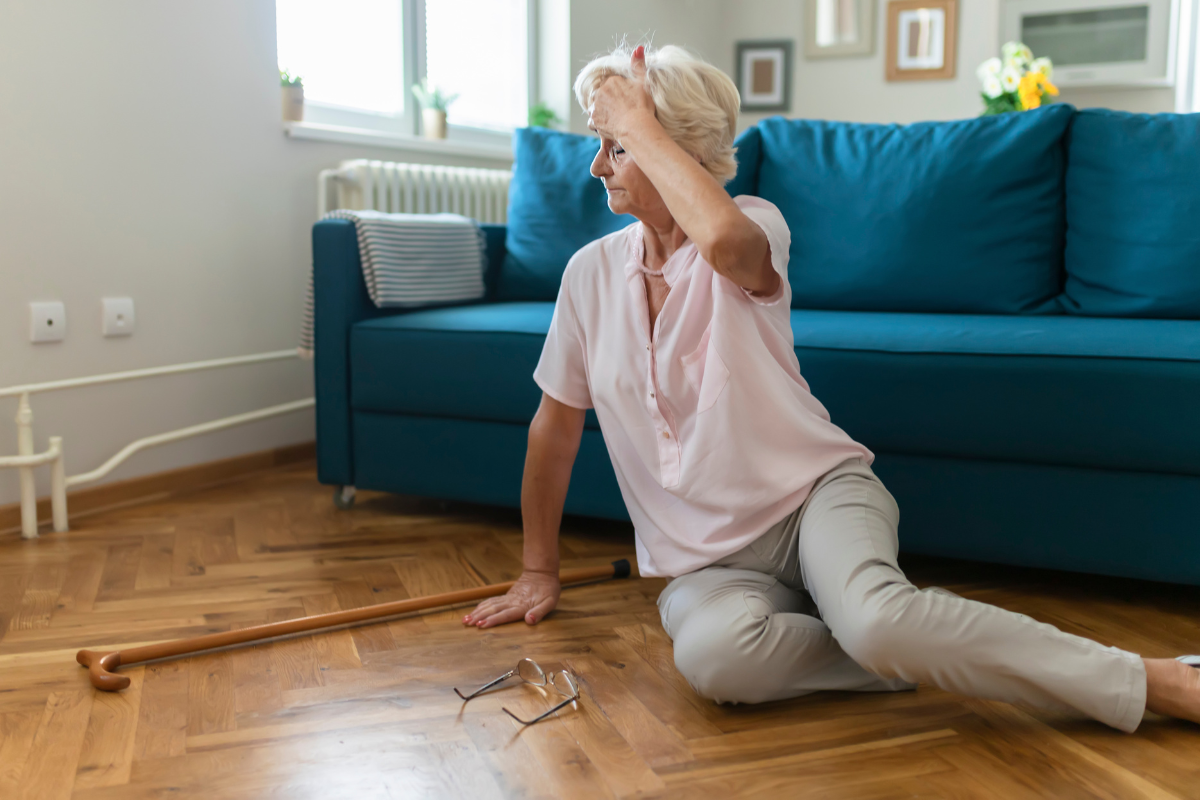 Image by Pixels Effects
Image by Pixels Effects
Unmasking the Platelet Puzzle: Navigating Low Levels during Chemotherapy
Chemotherapy can also affect bleeding. For instance, platelets aid in the clotting of blood and stop bleeding. Numerous chemo medications temporarily reduce platelet counts. Blood platelets can become weaker when taking aspirin or other similar medications.
Tell your doctor or nurse if you experience any unusual bleeding or bruising, such as nosebleeds, bleeding gums, heavy periods, blood in your urine (pee), stools (poo), or tiny red or purple spots on your skin that may resemble a rash. Some patients may require a platelet transfusion, which is administered via drip (infusion). The platelets will be infused back into the patient's bloodstream.
Here are some suggestions for preventing harm:
- When performing tasks around the house or in the garden, put on protective gloves.
- Avoid running into objects or stumbling over yourself.
- Avoid flossing and use a gentle toothbrush to prevent bleeding gums.
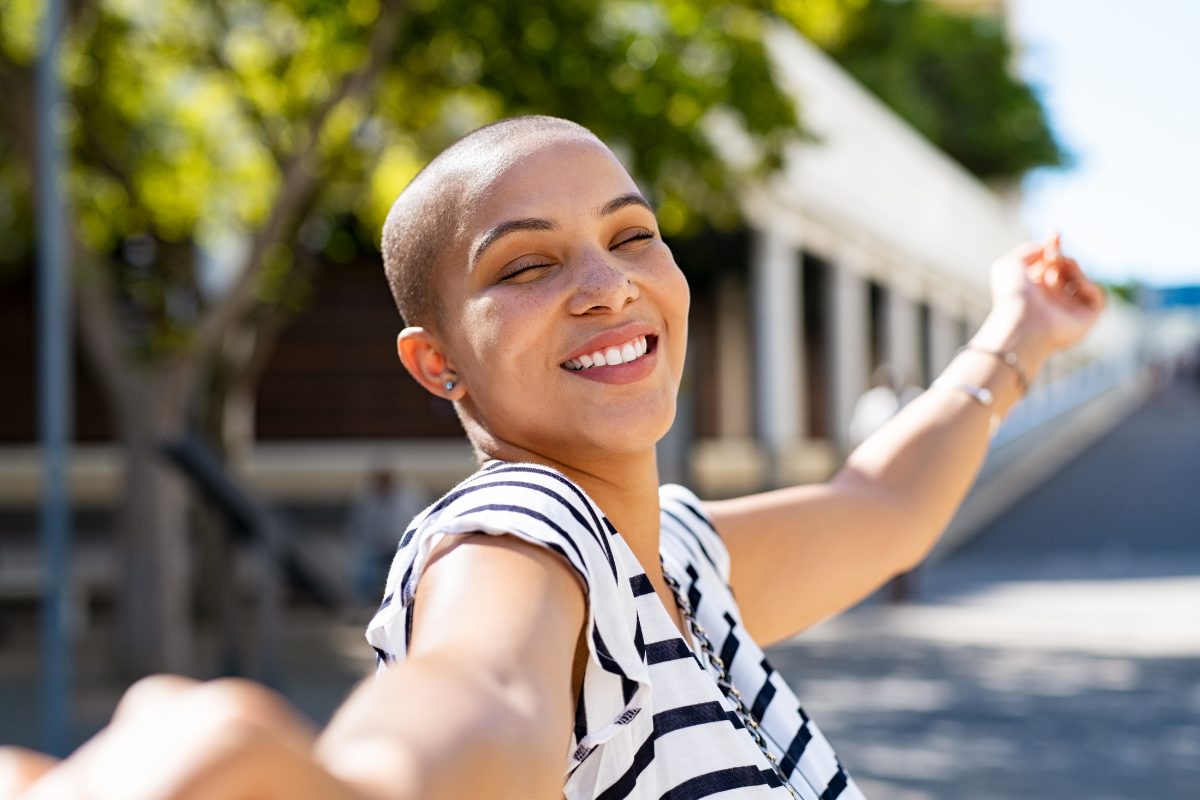 Image by Rido Franz
Image by Rido Franz
Bouncing Back: Conquering Hair Loss with Confidence during Chemotherapy
Chemotherapy can be a distressing experience for many patients, as it often leads to hair loss. This side effect can occur within a few days or weeks after starting treatment. You may notice hair falling out while brushing, combing, and washing your hair, or even finding it on your pillow in the morning. It's not only the hair on your head that is affected; some chemotherapy medications can also cause hair loss in your body, including pubic hair and underarm hair. In addition, eyelashes and brow hair may also fall out due to certain chemotherapy drugs. Coping with hair loss during chemotherapy can be challenging, but it's important to remember that it is usually a temporary side effect.
Before chemotherapy, you could decide to get a short hairstyle. This can prevent lengthy hair from pulling too much on the scalp and hastening hair loss. There are many options you can choose from if being bald makes you uncomfortable. There are bandanas, wigs, caps, turbans, or scarves.
Cold caps may help prevent hair loss during chemotherapy, depending on the type of cancer and treatment you are undergoing. They work by reducing blood flow and medication delivery to the scalp. However, it is important to note that myeloma patients should not use cold caps. In solid cancers, the caps can prevent chemotherapy medications from reaching the head. In myeloma, the chemo must reach all areas of the body including the head. To determine if using a cold cap would be beneficial for you, it is recommended to consult with your doctor or nurse.
After completing chemotherapy, hair typically regrows within a few months, although initially, it may appear thin and slightly different in color or texture. However, after three to six months, individuals undergoing this therapy can expect to have a full head of hair again. I initially had no gray hair before starting chemo. I lost all my hair after undergoing a high-dose Melphalan treatment. When my hair grew back, it came back with a LOT of gray hair. I didn’t want to deal with the gray, so I kept my hair short until the gray hair grew out an inch. Then I would cut it off. That was my cycle. Grow an inch, cut it back ½ inch. I did this until my pre-chemo hair returned.
- Keep your scalp and hair extremely clean. Apply a gentle shampoo, such as baby shampoo. Use any sorbolene lotion, Redwin lotion for example, if you wish to apply lotion on your head. Before using any other hair or skin care products, see your nurse.
- Use a big comb or a hairbrush with soft bristles to gently comb or brush your hair.
- Inform your loved ones—especially the kids—that chemotherapy could cause hair loss.
- Before it falls out, trim your hair, especially if it is long. Some claim that they feel more in control because of this.
- If you are cold at night, bring a light cotton turban or hat to bed.
- Use a satin, polyester, or cotton pillowcase instead of a nylon one since nylon can itch your scalp.
- Even if your hair is thin or spotty, discuss with your hairstylist how to make it appear as nice as possible.
- Use vegetable-based, non-chemical dyes if you want to color your hair during or for roughly six months following chemotherapy.
- Wear sunglasses outside if your eyelashes fall out to shield your eyes from the sun and dust.
- Wear what seems most comfortable to you, whether that's a wig, helmet, scarf, turban, or going bald. Avoid exposing your head to the sun or the cold if you wish to do so.
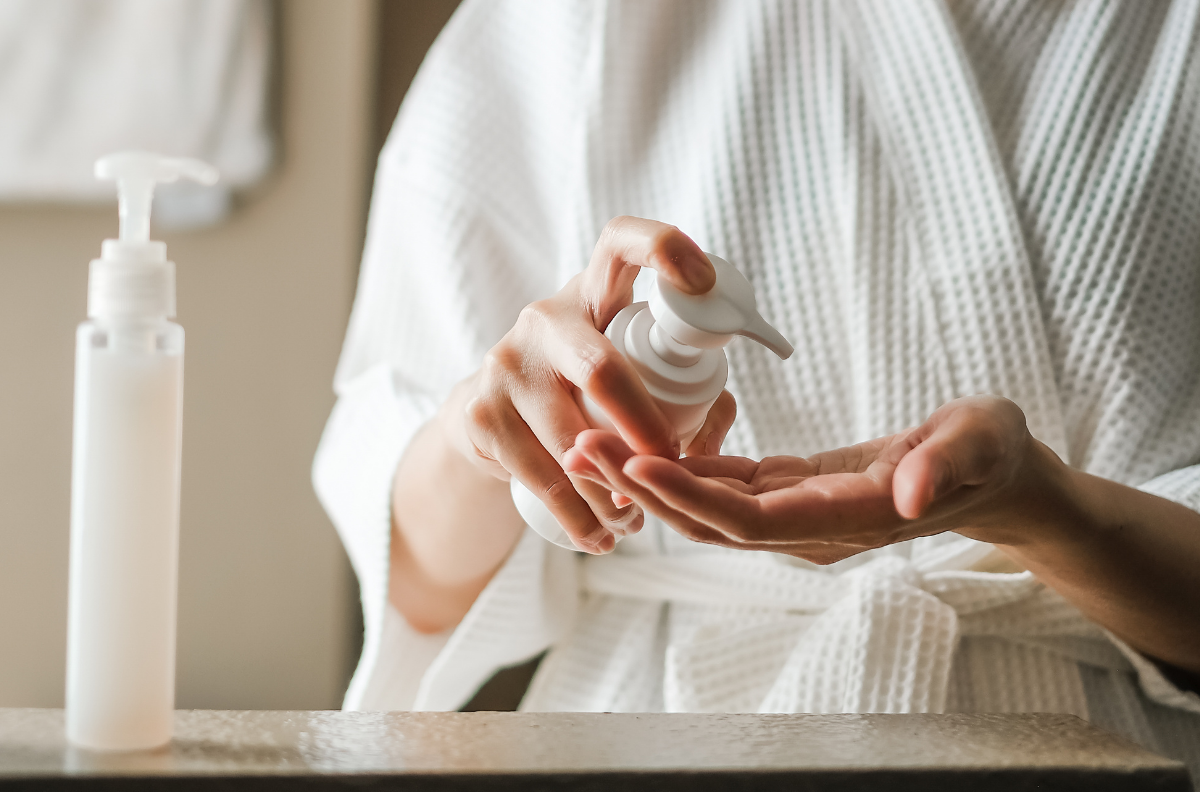 Image by Paulynn from Getty Images
Image by Paulynn from Getty Images
Radiant Resilience: Navigating Hair and Skin Challenges During Chemotherapy
If you're undergoing chemotherapy and experiencing dry skin as a side effect, you can take a few simple steps to alleviate it.
- Instead of regular soap, use moisturizing soap when showering. Afterward, gently pat your skin dry instead of rubbing it.
- To combat dryness, use a moisturizing cream or lotion containing sorbolene as a component. This includes moisturizing the bald scalp.
- Put on comfortable, relaxed clothing. Pick cotton cloth above coarse wool or artificial fibers.
- Use a gentle detergent designed for those with sensitive skin to wash your clothes.
- Till your skin has recovered, refrain from shaving or waxing. Inform your doctor or nurse right away if the place where the IV device was inserted on your skin turns red or irritated.
- Avoid swimming in chlorinated pools since the water can exacerbate skin alterations.
- When UV levels are 3 or higher, shield your skin from the sun. Put on sunglasses, a broad-brimmed hat, high-SPF sunscreen (SPF 50+), and protective clothing, and attempt to stay in the shade. While this advice applies to everyone, chemotherapy patients should pay particular attention to it.
Navigating the Fog: Understanding and Overcoming Chemo Brain
Despite reading about chemo brain, I assumed I wouldn't have it. I just couldn't imagine not being able to speak clearly or multitask. Chemo brain resembles a cross between early Alzheimer's and ADHD. It's just unbearably aggravating! Just be ready—sticky note stacks are useful.
Don't be too hard on yourself when it seems to go blank for a spell. Have someone else take care of the important tasks, such as feeding your children or pets, or have them review your work. It continues for as long as that may be. Simply get to know the new version of yourself. You aren't inferior; you're simply different. And if you discover your shoes in the refrigerator, try not to freak out! Just watch out that the sock drawer didn't get filled with frozen vegetables!
- To remember work, appointments, social commitments, birthdays, etc., use a calendar.
- Learn something new, such as a new pastime or how to solve crossword puzzles or other problems.
- Anything you need to remember, such as to-do lists, where you parked the car, or when to take your medication, should be written down. Using your cell phone’s camera to remember where you parked is also helpful.
- Ask your partner, family, or coworkers for their support or aid by talking about these difficulties with them.
- Get lots of rest. For improved memory and focus, get enough sleep.
- A little exercise each day can improve your mood and sleep.
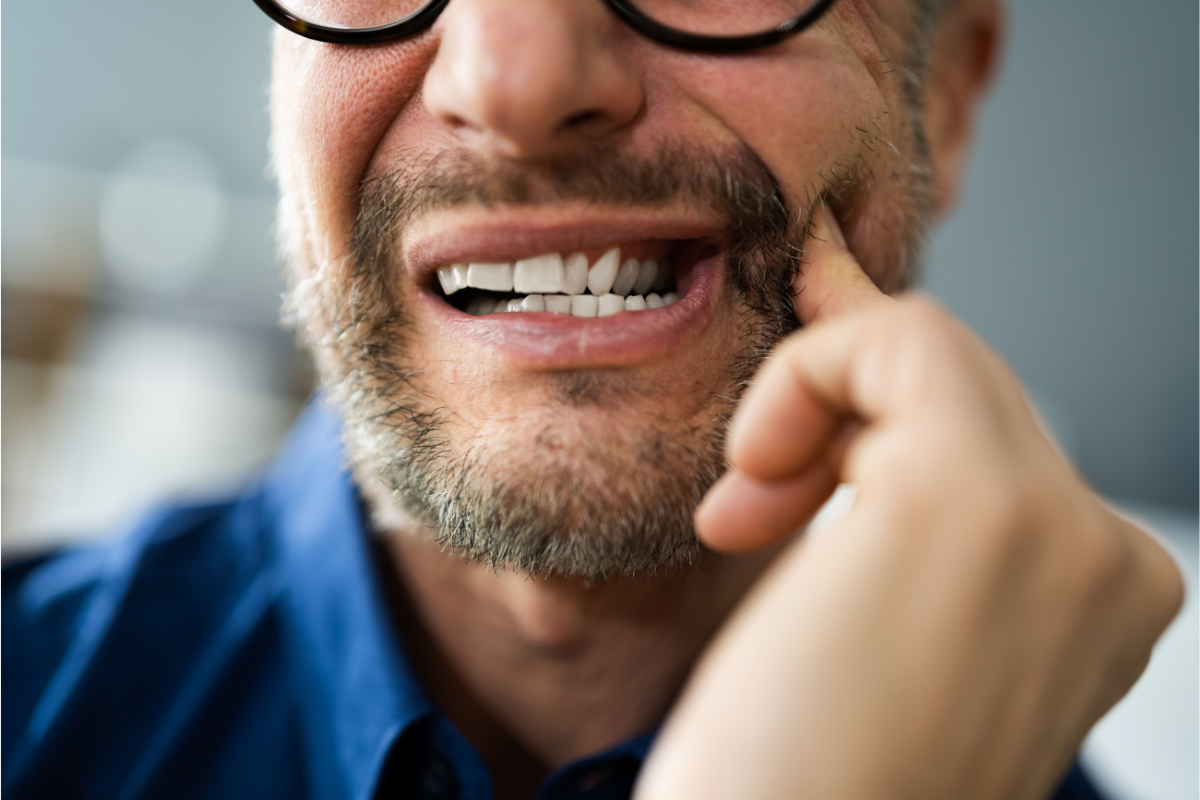 Image by Andrey Popov
Image by Andrey Popov
Nurturing Your Mouth during Chemotherapy
You will be informed about mouth hygiene while undergoing treatment by your specialty nurse, physician, or speech and language therapist (SLT). They might also scrutinize your mouth. Inform them if your mouth sores or if the soreness intensifies. They might be able to provide you with medication to help.
Chemo can also cause thrush, a common mouth illness known as candidiasis. It can affect the taste of food and make eating unpleasant. The tongue, cheeks, and throat can be covered in thrush, causing a spotted and light appearance. Your doctor may prescribe an anti-fungal medication to help with this issue.
Additionally, even without thrush, chemotherapy can temporarily or occasionally permanently alter the way food tastes. Some dishes may no longer be appealing, and there can be a sensation of everything tasting the same or having extreme flavors like salty or sweet. A metallic aftertaste or a perception of food tasting like cardboard may also occur. While the sense of taste can temporarily disappear, it usually returns.
To discover what tastes the greatest to you, try various dishes. Continue experimenting with new meals as your palate changes. Consume the foods you like and avoid the ones you don't. But after a few weeks, give them another try because your palate might have changed. Here are a few tips that may help you with chemo taste:
- Use pepper, cumin, or rosemary as seasonings, spices, and herbs to add flavor to your food. However, you could discover that some spices and condiments aggravate a sore mouth.
- Try consuming bland foods like crackers, potatoes, and bread, or follow the BRAT diet..
- Do some beef marinating.
- Serving cold meats with pickles or chutney may improve their flavor.
- Foods with a sharp flavor can be reviving and leave a nice aftertaste. Fresh fruit, fruit juices, and sugar-free beverages are among them.
- Consider lemon tea, herbal teas, or a cool beverage like lemonade if you no longer enjoy tea or coffee. I found that sucking on lemon drops before eating also helps.
- Some people prefer the flavor of cold dishes to heated ones. It could be beneficial to wait for food to cool before eating it if your taste or smell sensations alter.
- Serve sauces with dishes made with fish, chicken, red meat, and eggs. These sauces could also be used on vegetables. But if your mouth hurts, be careful since some sauces could contain curry or sweet and sour. Those may hurt to eat.
- Use reusable plastic cutlery if you have a metallic aftertaste. (This helped me through the chemo taste impairment)
- Before eating, brush your teeth.
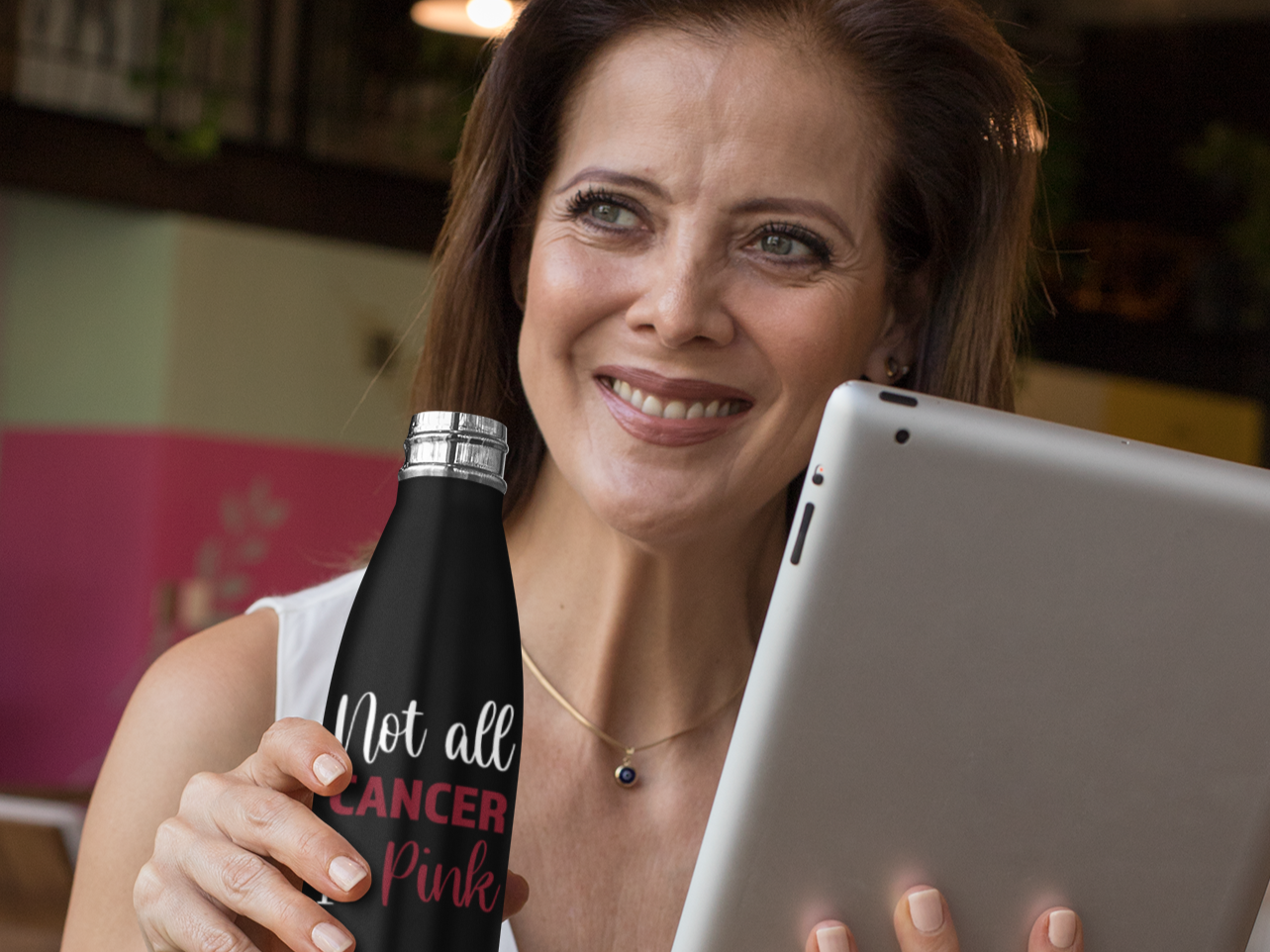 Image by Shop Wrenée and Myeloma For Life
Image by Shop Wrenée and Myeloma For Life
Quenching the Thirst: Managing Dry Mouth During Chemotherapy
- Four times per day, rinse your mouth with a teaspoon of salt or bicarbonate of soda in a glass of warm water. Avoid using mouthwashes with alcohol in them.
- While receiving chemotherapy, try sucking on ice to ward off mouth sores.
- If you have a dry mouth, drink plenty of liquids, especially water, and consume moist foods like casseroles or soups. Utilize sauce or gravy to moisten food.
- Use plain yogurt to soothe sore lips or gums.
- Foods can be blended to make them easier to eat. Try making fruit and yogurt smoothies.
- Avoid eating foods that are extremely hot, spicy, acidic, or gritty (such as nuts or grains), as well as alcoholic beverages and smoking. All of them can make mouth sores worse.
Fighting Fatigue: How to Stay Energized during Chemo
- Schedule your activities during the time of day that you often feel the most energized.
- Take frequent breaks, it can help your body heal.
- Schedule regular exercise. Exercise that is light to moderate can lift your mood and lessen treatment-related weariness. Consult your medical team about the best activities for you.
- Request and accept help from your family, friends, and neighbors. They can assist with housework, gardening, driving, and shopping.
- If you have kids, enlist the help of dependable family members and friends to watch them throughout your chemotherapy treatments and to be there in case you get sick afterward.
- Find techniques to control your anxiety and/or sleeping issues because these can affect how tired you are. Exercises for relaxation or meditation may help you sleep better or have more energy.
- Try acupuncture; according to some studies, it may aid after chemotherapy to lessen physical exhaustion.
- Consult your doctor to determine if anemia, or low quantities of red blood cells, may be the cause of your lethargy. It is possible to treat anemia.
- Talk to your employer about the effects of the treatment. You might be able to work flexibly during or after chemotherapy at some places of employment. You may be allowed to choose between taking a few weeks off, cutting back on your hours, or working from home.
 Image by Myeloma For Life™
Image by Myeloma For Life™
Finding Comfort in the Chaos: Navigating Life with Chemo
Here are some pointers to help you live more comfortably while receiving chemotherapy:
- Try to remember the objectives of your treatment. This will assist you in maintaining a positive outlook on days when things are difficult.
- Never forget how crucial it is to eat healthfully. To regenerate tissues and regain vigor, your body requires food.
- Ensure your well-being. You might feel like having a "pajama day" on some days. This has a lot of healing potential. Try to maintain your normal personal care routine, though, as much as you can.
- Learn all you can about your illness and how to treat it. Your dread of the unknown may reduce as a result, and you may feel more in control.
During chemotherapy, it is important to take precautions to prevent infections and reduce the risk of illness spreading. To protect yourself, consult your physician, get a flu shot, and encourage your loved ones to do the same. It's also important to ask your loved ones to stay away if they are sick with the flu, a cold, or any other contagious illness. Try to avoid close contact with someone who is ill and avoid crowded places like malls and public transportation. These simple steps can help keep you safe during chemotherapy and minimize the risk of infection.
 Image by Shop Wrenée™ and Myeloma For Life™
Image by Shop Wrenée™ and Myeloma For Life™
Writing a journal or diary to gain insights into your emotions during therapy not only benefits you, but also aids medical professionals by assisting them in recalling important questions. It's important to keep track of how well the measures you're taking to manage side effects are working. Be kind to yourself and set reasonable goals. You'll often find that therapies such as meditation, relaxation, massage, counseling, and acupuncture can really help ease the anxiety, nausea, and exhaustion that chemotherapy can cause. So, give them a try and see how they make you feel!
If you have a tip or trick please feel free to share in the comments below.

